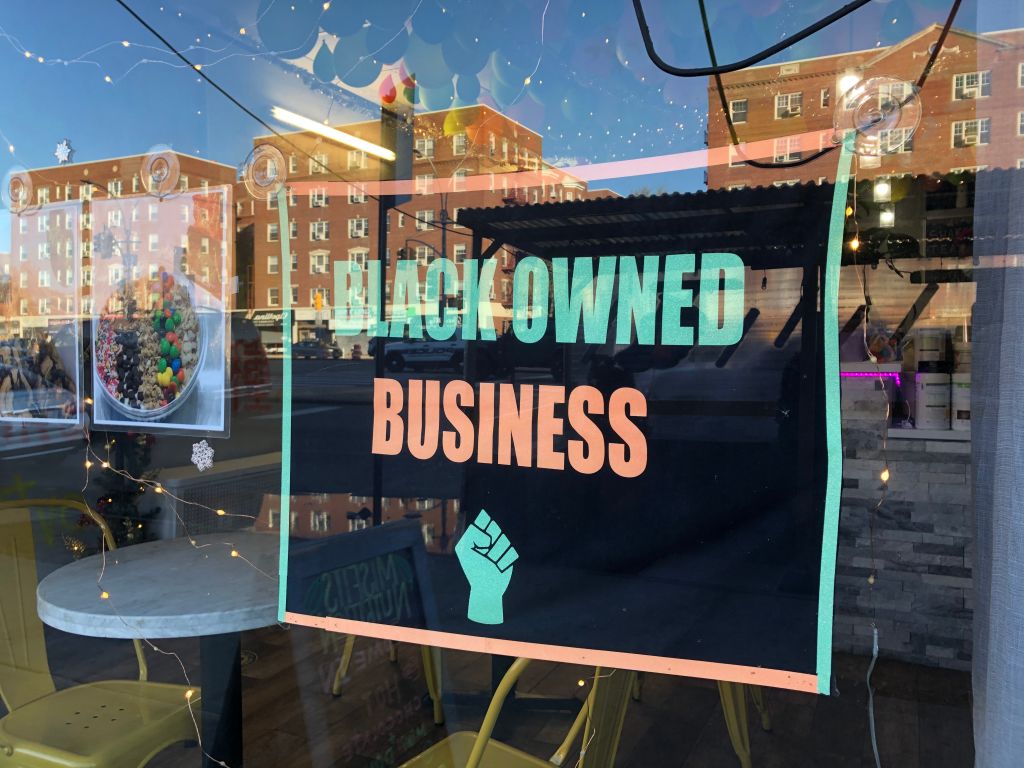Op-Ed: Black Community Uplift Requires Robust Investment
Source: Education Images / Getty
Old tactics such as redlining and exorbitant, predatory banking fees continue to be among the ways Black people are systemically shut out of entrepreneurship and community building. The dream of owning a home, a business or revitalizing a community is often out of reach for us, no matter how hard we work and save.
In the aftermath of George Floyd’s tragic murder in 2020, scores of organizations, corporations, financial institutions, and retailers pledged to give their time, money, and resources to close the racial wealth gap. However, the further away we get from that summer of racial reckoning, we see less commitment to diversity, equity, and inclusion. Companies have cut their DEI programs, and the general population has stopped talking about investing in Black businesses and communities altogether.
MORE: Black-Owned Banks: How Fintech Presents Untapped Community Reinvestment Potential
Community uplift must include investment. Rochdale Capital was created to do just that as an emerging community development financial institution (CDFI). We work with key stakeholders to increase opportunities for co-op and community ownership in under-resourced communities. Co-op ownership allows members to have their own share of a property. Community ownership can happen via a health center, renewable and food security solutions, or land trust–all things that provide economic opportunities for individuals and improve the whole community.
As a policy wonk with financial services experience, I can make a real difference in this space. CDFIs, when led by Black people, are positioned to counter the systems that have created barriers to prosperity. But to have an effect, it takes people committed to racial equity to fund these institutions optimally.
Rochdale is unique because we are big believers in living our brand. We are an unapologetically Black-led CDFI. We have a majority-minority board, and Black people and women are on our list of legal, audit, vendors, and contractor partners. We have a depository relationship with a Black bank and carry their corporate credit cards. Supporting Black communities and partnering with Black stakeholders is a given, not an exception.
One of Rochdale’s proudest moments was securing a $400,000+ line of credit to the first Black-founded and -owned grocery store in the state of Iowa. The Black neighborhood, Walnut, was a food desert for more than 50 years. In the past, Waterloo has been ranked one of the worst places in the United States for Black people to live. Hence, this investment is critical to the economic growth needed in the community. And it offers a glimpse at the work that is possible for similar neighborhoods.
My education and experience in both banking and policy have brought me to this juncture in my life. In these spaces, I closely observed Black people’s challenges. I was reminded of the significance of reaching back to help my people. As a proud Head Start child and former government affairs staff at the National Head Start Association, I would visit Head Start centers nationwide. This work was meaningful to me and the affection I received from children and their parents during my visits to the centers filled me with the gratification I had been missing in my policy work. That experience solidified the value of creating opportunities to build relationships and support Black children, their families and community.
In 2001, I joined Capital Impact Partners (then NCB Development Corporation) tasked with starting a government relations program from scratch. That is when I fell in love with community economic development and obtained a master’s degree in the subject to raise my business acumen. Later as a banker, I noticed early on that I was too personally invested in the outcome of the deals that I was bringing to the bank. I needed to go each step of the way with prospective borrowers, which is hard to do in a financially regulated environment. I knew that our community needed to be better. Now I do better. We want to be first in class in the borrower’s experience.
We are thankful to have partners who share the same mission of authenticity and centering racial equity. Revolve Fund gave us seed funding, which reduces roadblocks around factors such as strict requirements for capital equity. This support allows us to provide the much-needed capital to launch businesses and other enterprises in Black communities, which they would otherwise be denied.
I draw inspiration for supporting community development from my father. He committed to doing as much good for as many people as possible. Although he received a coveted community service award in my hometown while I was in high school, he gave of himself without much fanfare or the need for acknowledgment. He knew volunteering his time and gifts was just the right thing to do.
This work has also been about accepting my responsibility as a citizen. It is a blessing that I am in this position because of the odds that were against me statistically. So, it is nothing short of a requirement to ensure I do what I can to help close the racial wealth gap. It is a civic duty. One of my favorite quotes I often cite is, “Democracy is not a spectator sport.” Together, we have a collective responsibility to put our money where our rhetoric is, which moves us from spectator to active participant in this democracy.
John Holdsclaw IV is the founder of Rochdale Capital.
SEE ALSO:
Middle-Class Black Homeownership In Atlanta Is On The Decline. Here’s Why
The post Op-Ed: Black Community Uplift Requires Robust Investment appeared first on NewsOne.

